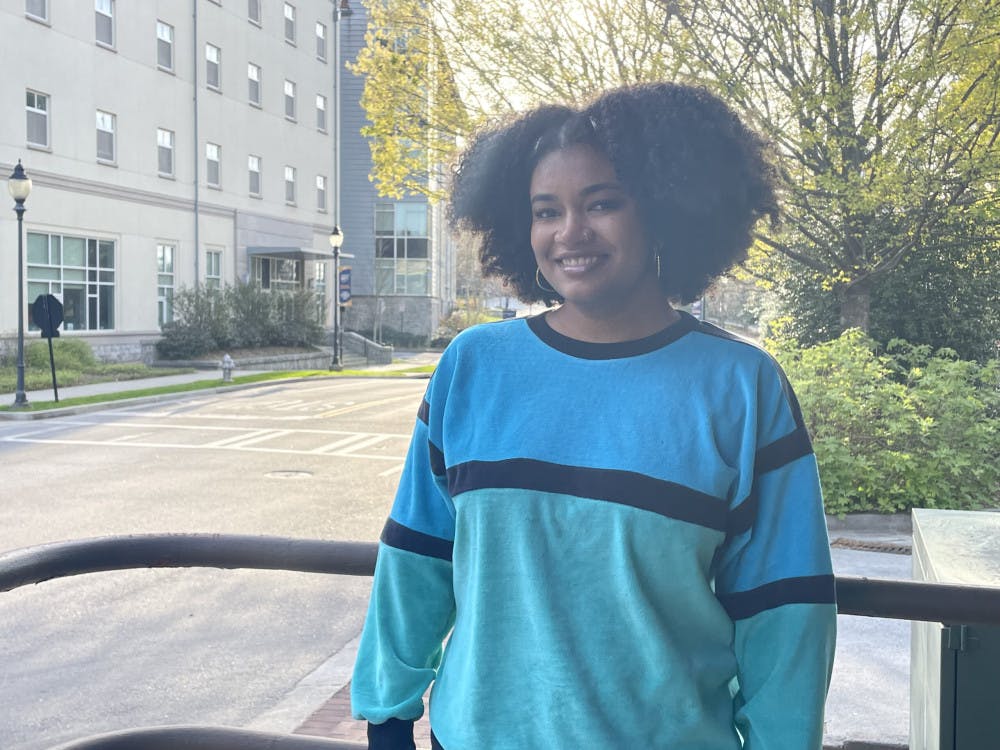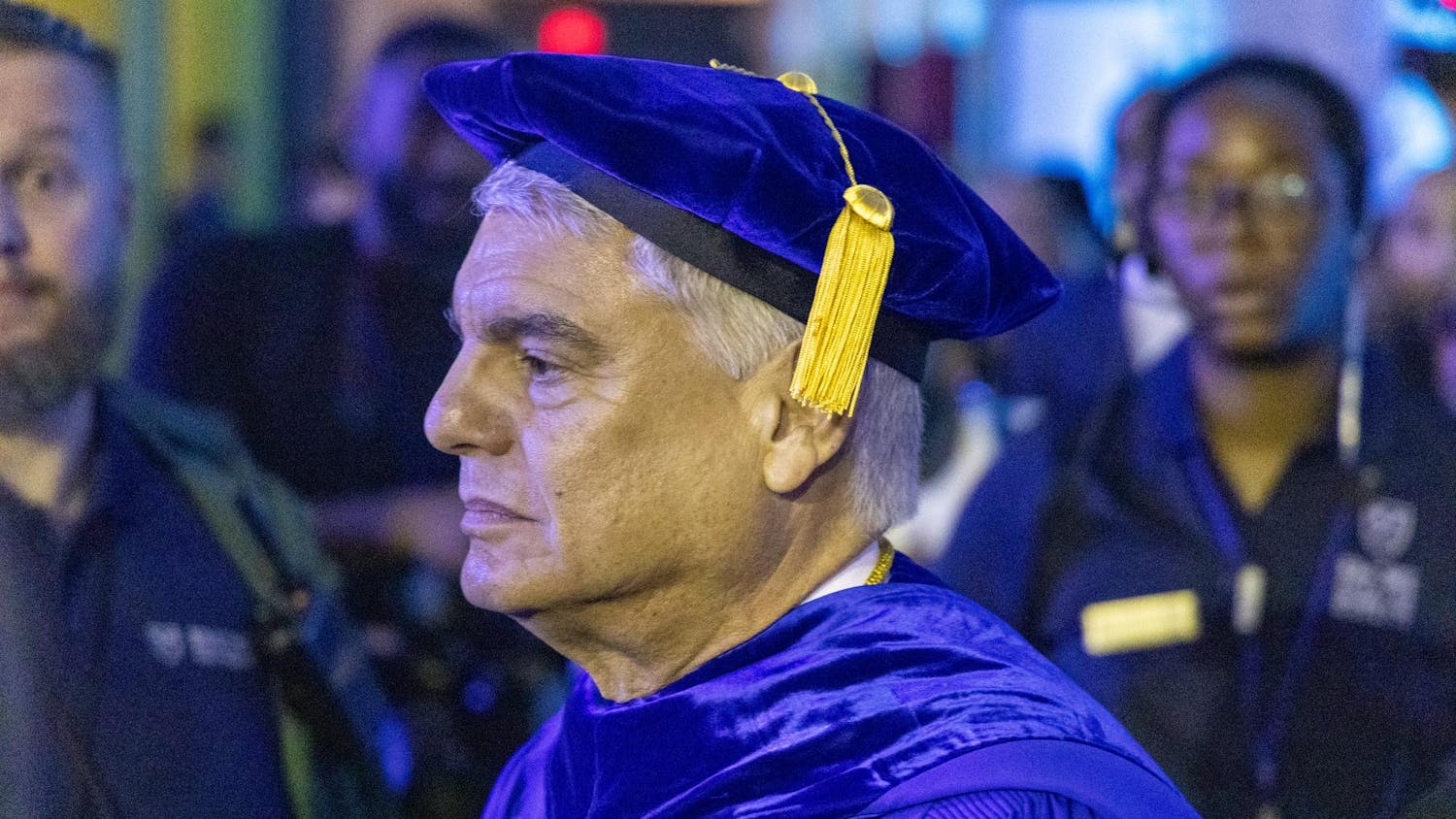
Though India Stevenson (22C, 24PH) graduated from Emory University’s College of Arts and Sciences (ECAS), she still lives in Atlanta. She’s seen Emory in winter, spring, summer and fall. She’s seen it in high school, in college and now, in graduate school, as a first-year at the Rollins School of Public Health. She’s lived in or around Atlanta her entire life. Emory is her home, through a worldwide pandemic, through science and art.
Ironically, she hadn’t always planned on sticking around. In high school, Stevenson initially thought she would leave the city.
“Honestly I was looking to leave because eventually I would like to experience life outside of Atlanta,” Stevenson said. “I do love it here, but I want to experience more. But I think the Emory programs were just too appealing to me and, I mean, I wasn’t against staying here.”
Stevenson certainly met her match at Emory. The flexibility of Emory’s programs and free range over majors and classes appealed to her, as she was interested in both film and public health.
During her undergraduate career at Emory, Stevenson pursued film in and outside of the classroom. She also participated in Campus Movie Fest, which provides training and equipment for college students to create a five-minute film in one week. The program, originally founded by Emory students, travels around the country hosting “moviemaking week” at various universities.
Stevenson discovered the festival through her coursework in the film and media department and created a documentary with a group about the experience of being a student of color at Emory.
“That was a really eye opening experience and I really enjoyed the process,” Stevenson said. “It was really nice, at the same time I was exploring my interest in health and science, to be able to put my foot in the door.”
Stevenson went on to make more short films, trying out different genres including documentaries, live action, silent and animation throughout her undergraduate career. But then, COVID-19 struck in March of 2020. Like other students, Stevenson was sent home, but home was close by. She continued creating short films, including a silent film, during lockdown. Although she lost two years of her Emory experience to the pandemic, at Rollins she gets that lost time attending Emory back.
Stevenson describes her undergraduate graduation as “bittersweet.” On the day, May 9, she and her roommates got ready together and took the University shuttle to campus. Just a few days later, the senior class moved out.
But in the fall, Stevenson stepped back on campus, and Emory was home yet again. Except it wasn’t — not quite.
“It's just weird to be in the same place feeling like things aren't the same,” Stevenson said. “I'm not surrounded by the same people [or] same professors. I'm in the same place, but I had to start over with the connections I [made].”
Campus looked different; Rollins is significantly smaller than the college’s sprawling terrain.
“There's only three buildings over there, but somehow I was still lost,” Stevenson laughed. “I was like, ‘Why am I lost at Emory? I've been here for four years!’”
Some things didn’t change though. One of her professors who had taught Stevenson’s undergraduate human health research methods course taught her global health class this year.
Stevenson still finds herself on the undergraduate side of campus occasionally. She visits friends still at the college. Her old screenwriting class even had a reunion over coffee at Kaldi’s.
When I asked Stevenson what she liked better, ECAS undergraduate or Rollins, she picked graduate school.
“It just seems like a more narrow focus that you can shape to your goals and your interests,” she said.
It’s more tailored to her interests in public health. Socially, it’s more diverse. People come into the Masters of Public Health (MPH) program from all different academic backgrounds and areas of expertise.
“Not everyone's my age, and it's cool to get to know people from all different stages in life,” Stevenson said.
The last question I ask Stevenson is about her first name, India. It turns out to be a fitting end to a conversation about home — the fun and the bittersweet, the consistent and the ever changing. When I ask about her name, she answers as though she knows the answer through and through. I suspect it’s something she’s been asked many times.
“My mom's side of the family is from Punjab, India,” she explained. “She told me that she named me after the whole country as a dedication to them and what they sacrificed to bring her here and what it means to her.”








